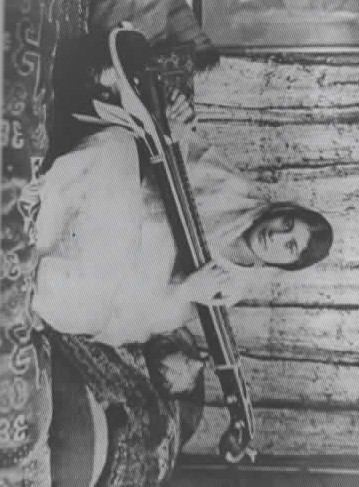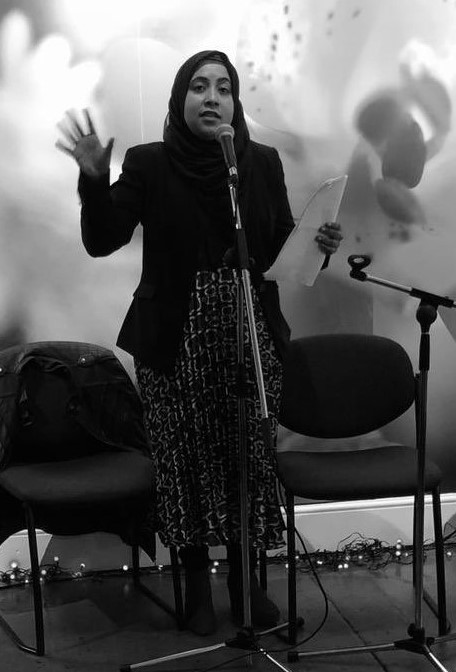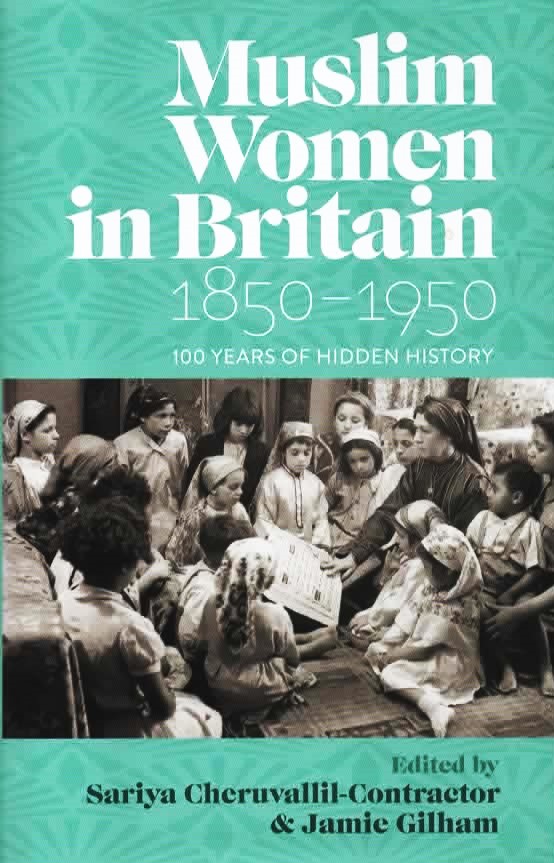When
Where
Booking

SOLD OUT.
This year’s Ibn Rushd lecture will bring to life and honour the hidden histories of Muslim women in Britain.
Professor Sariya Cheruvallil-Contractor, editor of a groundbreaking new book on the subject, will tell the stories of Muslim women who lived in Britain between the mid-nineteenth and mid-twentieth centuries, from Victorian times to the years immediately after the Second World War—just before immigration profoundly affected the size and composition of Britain’s Muslim communities. It reveals a rich variety of experiences, including Muslim women who travelled to or away from Britain, and many who converted to Islam within the British Isles.
Sariya Cheruvallil-Contractor’s presentation for the Ibn Rushd lecture this year will reinstate Muslim women as actors, storytellers and storymakers who have shaped the history of Britain and of ‘British Islam’.
The event will see the launch the landmark 50th edition of our in-house journal Critical Muslim, the theme of which is Halal. We will also announce the 2024 recipient of the Muslim Institute/Halal Food Authority Community Empowerment Fund. The evening will conclude with a book-signing and a hot buffet.
Hurst publishers are offering a 25% special discount for the booksigning. (From £30 hardback to £22.50 on the night).
The lecture will take place in the impressive setting of the Art Workers' Guild, 6 Queen Square, London WC1N 3AT (nearest tube stations Holborn or Russell Square)

Sariya Cheruvallil-Contractor is Professor in the Sociology of Islam at the Centre for Trust, Peace and Social Relations, Coventry University, UK. She is Chair (2020-2023) of the Muslims in Britain Research Network (MBRN) and edits Research in the Social Scientific Study of Religion (RSSR). As a feminist sociologist, she interrogates the power dynamics within knowledge production and the implications of the processes and systems of knowledge on society as a whole. Her research portfolio currently includes research on digital religion, vulnerable children, definitions of security and inter-convictional dialogue. She has several publications including Muslim Women in Britain: Demystifying the Muslimah (Routledge 2012), Religion or Belief, Discrimination and Equality: Britain in Global Contexts (Bloomsbury 2013), Islamic Education in Britain: New Pluralist Paradigms (Bloomsbury 2015), Digital Methodologies in the Sociology of Religion (Bloomsbury 2015), Islam on Campus: Contested Identities and the Cultures of Higher Education (OUP 2020) .

Sariya Cheruvallil-Contractor, along with historian Jamie Gilham is the co-editor of Muslim Women in Britain, 1850–1950: 100 Years of Hidden History. The book reveals a rich variety of experiences, including Muslim women who travelled to or away from Britain, and many who converted to Islam within the British Isles. Muslim Women in Britain is published by Hurst
Praise for Muslim Women in Britain
‘Providing unique insight into the stories of extraordinary Muslim women—from an aristocrat to a teacher and a WWI spy—this remarkable book reshapes our understanding of their profound impact on British history.’ - Sadiya Ahmed, founder of Everyday Muslim Heritage and Archive Initiative
‘This important and timely book sheds new light on the active and inspiring part that these pioneering women played in shaping the history of Islam in an increasingly multicultural Britain.’ - Humayun Ansari, Emeritus Professor in the History of Islam and Cultural Diversity, Royal Holloway, University of London, and author of ‘The Infidel Within’: Muslims in Britain Since 1800
About the Muslim Institute Ibn Rushd lectures
The global history of ideas includes a handful of names whose contributions have stood the test of time: among those most celebrated is the twelfth century Muslim polymath Abu 'l-Walid Muhammad ibn Ahmad ibn Rushd (1126-1198), known to the Latin West as ‘Averroes’.
Ibn Rushd was a master of philosophy, theology, law and jurisprudence, astronomy, geography, mathematics, medicine, physics and psychology. He is seen as a founding father of secular thought in Western Europe, where his school of philosophy is known as Averroism. In the Muslim world, he is known largely for his defence of philosophy from theological attacks, particularly by scholastic theologian al-Ghazali (1058-1111). Today, all over the world, streets, statues and postage-stamps commemorate the life and works of one of the most important philosophers of all time.
The Muslim Institute's series of lectures, in honour of Ibn Rushd, which are intended to explore the contemporary relevance of Islam's intellectual history are delivered annually in early summer by notable academics and thinkers.
For more on the Ibn Rushd lecture series click here
